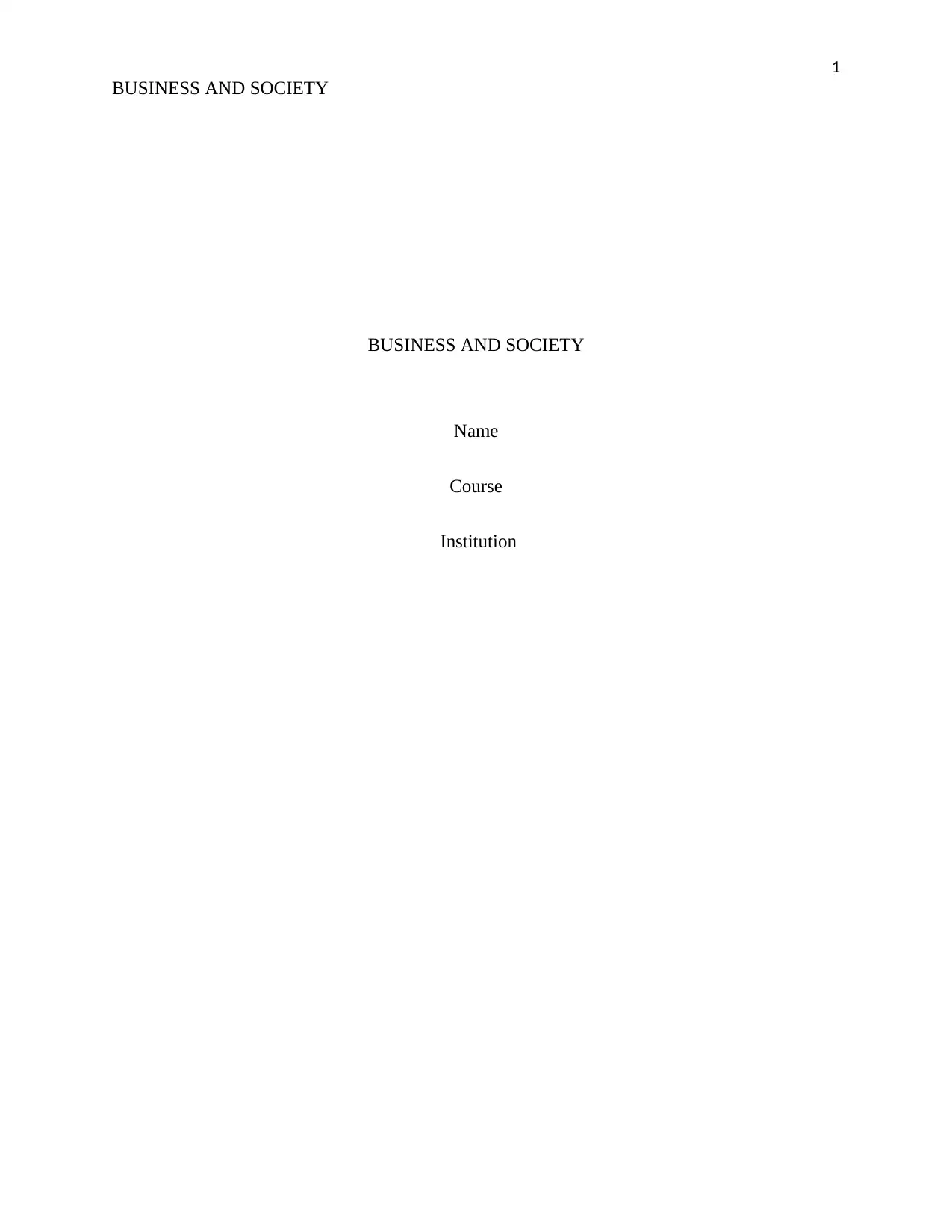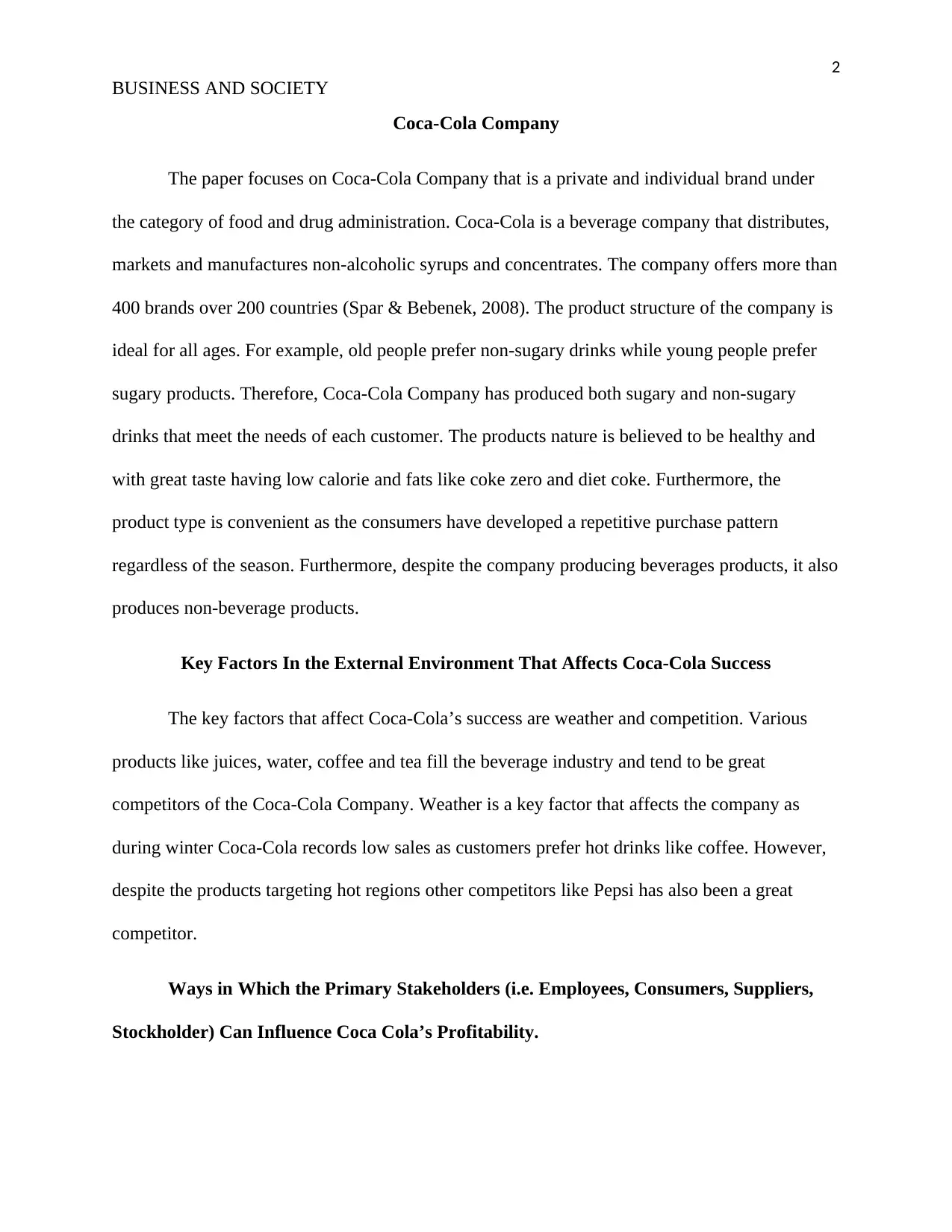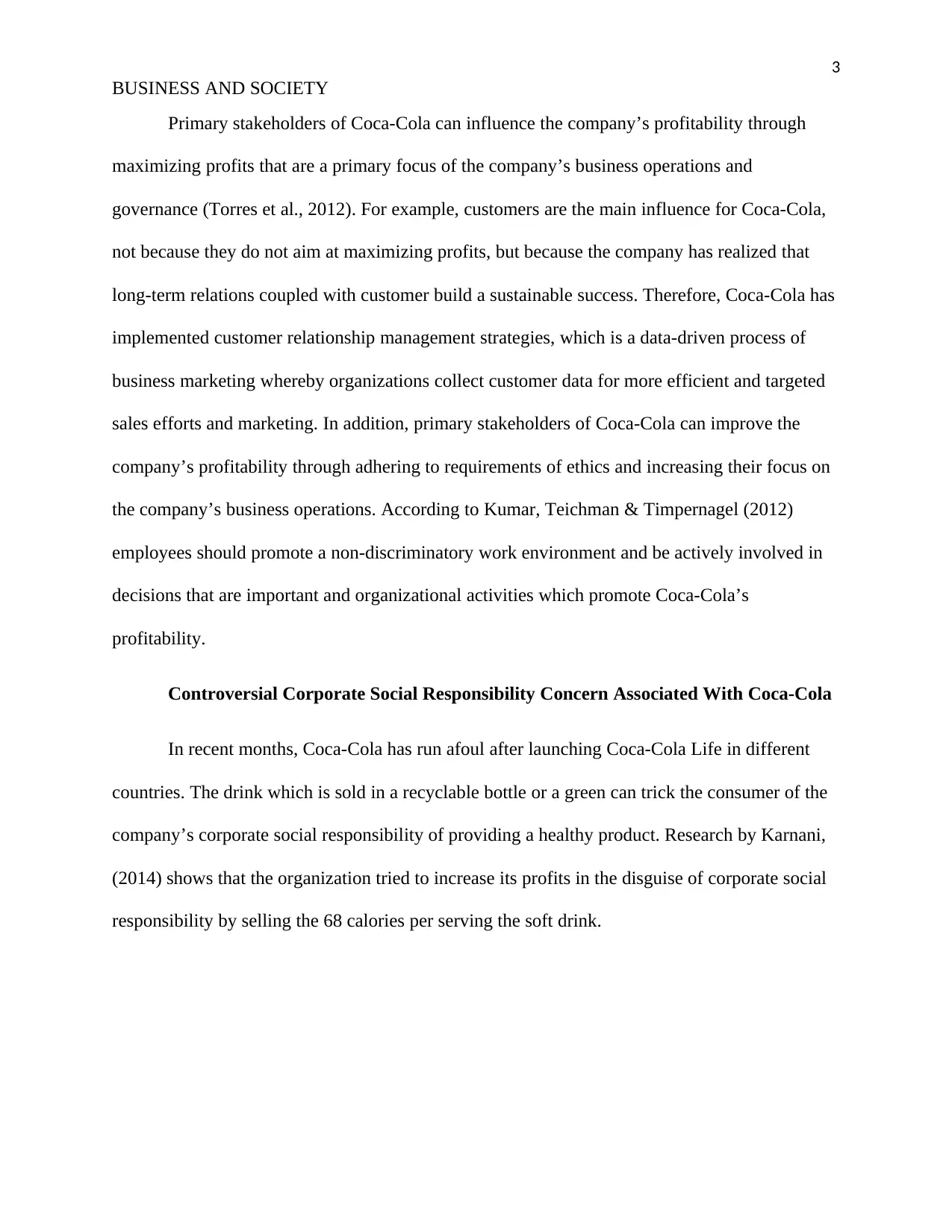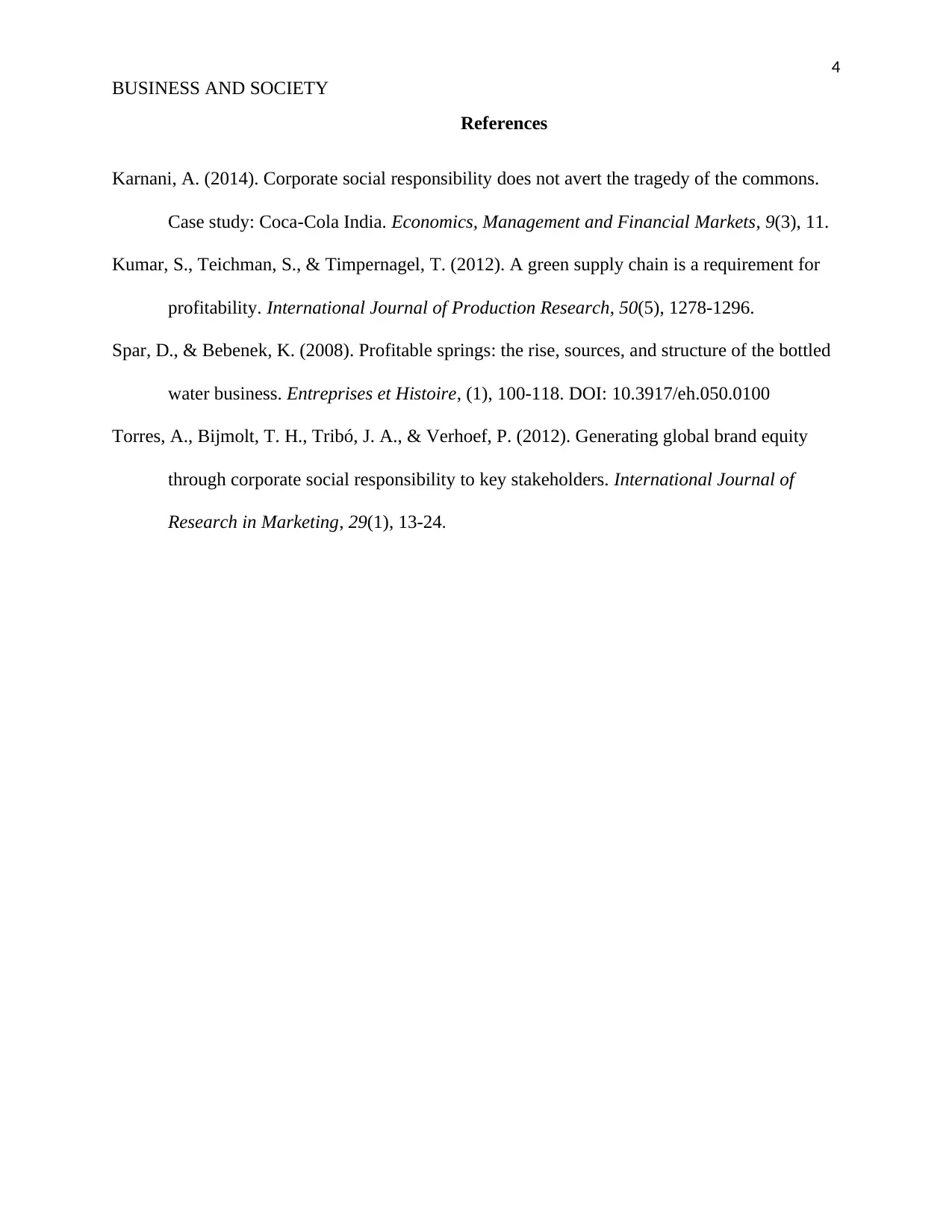Coca-Cola Company: Analyzing Business, Society, and Stakeholder Roles
VerifiedAdded on 2023/05/31
|4
|736
|161
Essay
AI Summary
This essay analyzes the Coca-Cola Company, a major beverage manufacturer, focusing on its business operations and societal impact. It examines key external factors like weather and competition that influence Coca-Cola's success. The paper discusses how primary stakeholders, including employees, consumers, suppliers, and stockholders, can affect the company's profitability through ethical practices and customer relationship management. It also addresses a controversial corporate social responsibility concern related to the marketing of Coca-Cola Life and its perceived health benefits. This analysis provides insights into the complexities of balancing business goals with social responsibility within a global corporation. Desklib provides access to similar solved assignments and resources for students.
1 out of 4










![[object Object]](/_next/static/media/star-bottom.7253800d.svg)